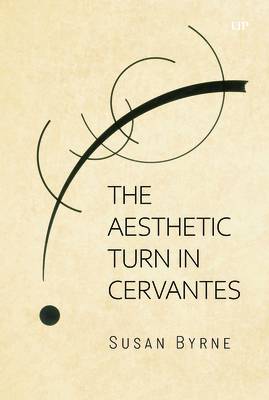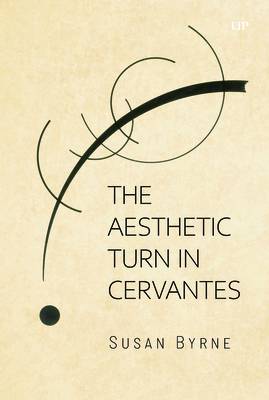
- Afhalen na 1 uur in een winkel met voorraad
- Gratis thuislevering in België vanaf € 30
- Ruim aanbod met 7 miljoen producten
- Afhalen na 1 uur in een winkel met voorraad
- Gratis thuislevering in België vanaf € 30
- Ruim aanbod met 7 miljoen producten
Zoeken
€ 114,45
+ 228 punten
Omschrijving
The Aesthetic Turn in Cervantes broadens our understanding of this transformative period. Susan Byrne examines a little-known legal treatise published in 1600 that defended artists' rights and served as a rallying cry for writers in Madrid. The book investigates early efforts to define creative writing as "good," "human," or "polished" letters, foreshadowing the mid-seventeenth-century French concept of belles lettres. Byrne closely analyses Cervantes's exploration of key aesthetic themes, including sensory experience, the interplay between sentiment and reason, the role of imagination in art, and the complex nature of truth and beauty.
Ultimately, the book illuminates how Cervantes gradually reconceptualized art and its truths as fully human expressions throughout his lifetime, both formally and substantively.
Ultimately, the book illuminates how Cervantes gradually reconceptualized art and its truths as fully human expressions throughout his lifetime, both formally and substantively.
Specificaties
Betrokkenen
- Auteur(s):
- Uitgeverij:
Inhoud
- Aantal bladzijden:
- 226
- Taal:
- Engels
- Reeks:
Eigenschappen
- Productcode (EAN):
- 9781487561451
- Verschijningsdatum:
- 14/04/2025
- Uitvoering:
- Hardcover
- Formaat:
- Genaaid
- Afmetingen:
- 152 mm x 231 mm
- Gewicht:
- 439 g

Alleen bij Standaard Boekhandel
+ 228 punten op je klantenkaart van Standaard Boekhandel
Beoordelingen
We publiceren alleen reviews die voldoen aan de voorwaarden voor reviews. Bekijk onze voorwaarden voor reviews.







